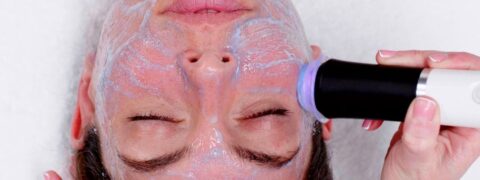Exploring Polynucleotide Injections
What are polynucleotides?
In the ever-evolving world of aesthetics, a new trend has emerged, Polynucleotide injections, commonly referred to as PN or PDRN injections. But what exactly are polynucleotides? Polynucleotides are biopolymers composed of nucleotide chains, which are the building blocks of DNA. In the context of aesthetic treatments, these injections are derived from salmon DNA, making them a unique and intriguing addition to the cosmetic world.
What do polynucleotides do?
Polynucleotide injections are designed to stimulate cellular repair and regeneration. When introduced into the skin, they work on a cellular level to enhance collagen production, improve skin elasticity, and promote overall skin hydration and rejuvenation. This innovative approach taps into the body’s natural healing processes, offering a minimally invasive solution for those wanting to achieve brighter, younger looking skin.
What are the benefits of polynucleotides?
The benefits of polynucleotide injections are multifaceted. These injections are renowned for promoting skin regeneration, reducing fine lines and wrinkles, and improving skin texture. They are also specifically used to treat dark under eye circles due to the cell regenerating effects. Additionally, polynucleotides contribute to increased hydration and collagen synthesis, leaving the skin looking plump, radiant, and more youthful.
So, are polynucleotides a skin booster?
Yes, indeed! Polynucleotides act as powerful skin boosters by stimulating the production of essential components like collagen and elastin. This results in improved skin quality, making it an appealing option for those seeking a natural-looking enhancement without resorting to more invasive procedures.
Are polynucleotides better than Profhilo?
Profhilo, another popular injectable treatment, shares similarities with polynucleotide injections but differs in its composition. While both aim to address skin laxity and boost hydration, polynucleotides offer the added advantage of promoting cellular repair and regeneration due to their unique DNA-derived structure. The choice between the two ultimately depends on individual preferences, treatment area and desired outcomes. In areas such as under eye, polynucleotides would be a more suitable option than profhilo. Both treatments are available at Aqua-Tox, our aesthetics lead and nurse prescriber Lucy will recommend the most suitable course of treatment for you at consultation.
What are polynucleotides used for?
Polynucleotide injections have a versatile range of applications in aesthetics. They are commonly used for facial rejuvenation, targeting areas with fine lines, wrinkles, and reduced skin elasticity. Moreover, these injections can be employed to improve the appearance of the neck, décolletage, hands, and delicate eye area, providing a comprehensive solution for overall skin enhancement. Other common skin concerns treated with polynucleotides include sun damage, photo ageing, scarring & stretch marks.
Studies have also shown that polynucleotides can be effective in the treatment of hair loss, both reducing hair loss and stimulating new hair growth.
How long do polynucleotide injections last?
The longevity of polynucleotide injections varies from person to person, influenced by factors such as individual metabolism and lifestyle choices. On average, results can last anywhere from six months to a year. Regular maintenance sessions may be recommended to sustain the optimal effects of the treatment. Initially two treatments are required, spaced 2 weeks apart.
What are the side effects of polynucleotides?
While polynucleotide injections are generally well-tolerated, like any cosmetic procedure, they may come with some downtime and potential side effects. It’s important to be aware of these to make an informed decision about whether polynucleotide injections are suitable for you. 1-2 days of downtime is common due to the common side effects of redness, swelling and mild bruising.
Other side effects may include: tenderness, itching, allergic reactions and infection. Providing that a qualified and experienced clinician administers the polynucleotide injections the risk of allergic reaction and infection is low. A medical questionnaire covering allergies should be completed before treatment as unfortunately, polynucleotides are not a suitable treatment for anyone with an allergy to fish. In these cases hyaluronic acid based skin boosters would be an advisable alternative.
Who cannot have polynucleotides?
While polynucleotide injections are generally safe, certain individuals may not be suitable candidates for this treatment. It’s crucial to consult with a qualified practitioner to determine if polynucleotides are appropriate for you. Conditions and situations that may exclude individuals from undergoing polynucleotide injections include: pregnancy & breastfeeding, active skin infections, autoimmune disorders, bleeding disorders and allergies.
How much are polynucleotide injections?
The cost of polynucleotide injections can vary depending on factors such as the practitioner’s expertise, geographic location, and the number of sessions required. Polynucleotide injections at Aqua-Tox Wellness Clinic start from £250. The exact cost will be determined following consultation and is dependent on the size of the area to be treated. A consultation also allows for a personalised treatment plan that aligns with both your aesthetic goals and budget.
Do polynucleotides really work?
Numerous studies and clinical trials support the efficacy of polynucleotide injections in promoting skin rejuvenation. Many individuals have reported noticeable improvements in skin texture, firmness, and overall appearance after undergoing this treatment. However, as with any aesthetic procedure, individual responses may vary, and consulting with a qualified professional is crucial to understanding the potential benefits for your unique skin concerns.
In conclusion, the rise of polynucleotide injections represents a promising development in the field of aesthetics. As a minimally invasive option with a focus on cellular regeneration, these injections offer a holistic approach to achieving youthful and radiant skin. Whether you’re considering addressing fine lines, wrinkles, or overall skin quality, polynucleotide injections provide a compelling option to explore in your journey towards aesthetic enhancement.
At Aqua-Tox we offer a number of treatment options that can address the same concerns as polynucleotides including, laser facelifts, Obagi medical skincare, radio frequency skin tightening and more. Knowing which treatment option is most suitable for you can be difficult so we offer a free consultation to discuss your skincare goals and determine which treatment will be most suitable to help you to achieve your skincare goals. This consultation can be booked online or by contacting us via phone or email.
Explore more blog posts from Aqua-Tox

Can laser hair removal work on fair hair?
One of the most commonly asked questions about laser hair removal. We explore laser hair removal on fair hair.

What are polynucleotides?
Exploring our newest injectable aesthetics treatment, polynucleotides. What are they and how do they work?

Lemon Bottle Fat Dissolving – Is it safe?
Delving into the new trend of Lemon Bottle fat-dissolving injections. What are they? Are they safe? Would we use them?

Geneo Oxygen Facial vs Hydrafacial – Which is better?
A detailed comparison of Geneo vs Hydrafacial to help you understand which is the best facial for your skin.

Using Whole Body Cryotherapy To Manage Pain Case Study
We speak to regular cryotherapy user Jim about how cryotherapy is supporting sciatic pain management.

What age can you get laser hair removal?
We can perform laser hair removal on under 18s but when and why would it be recommended over other methods of hair removal?